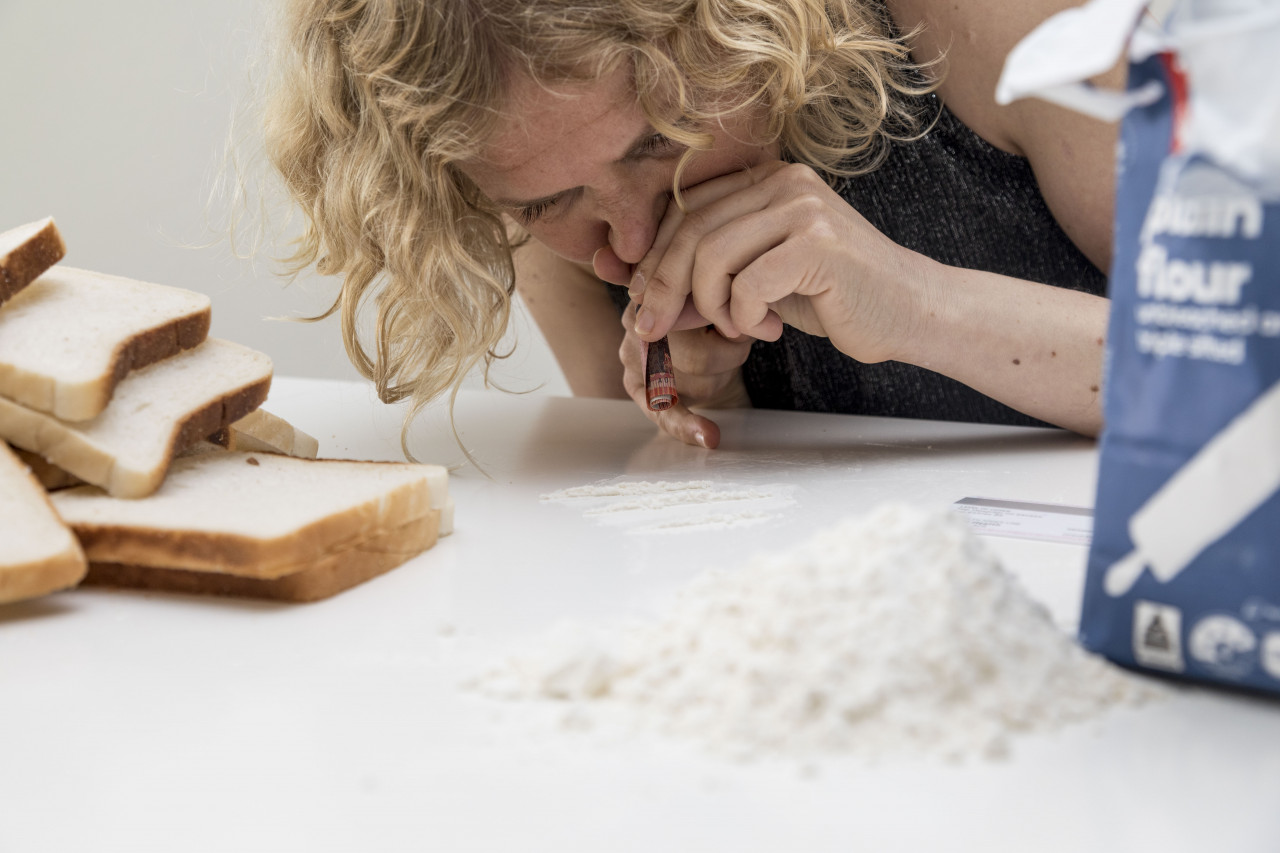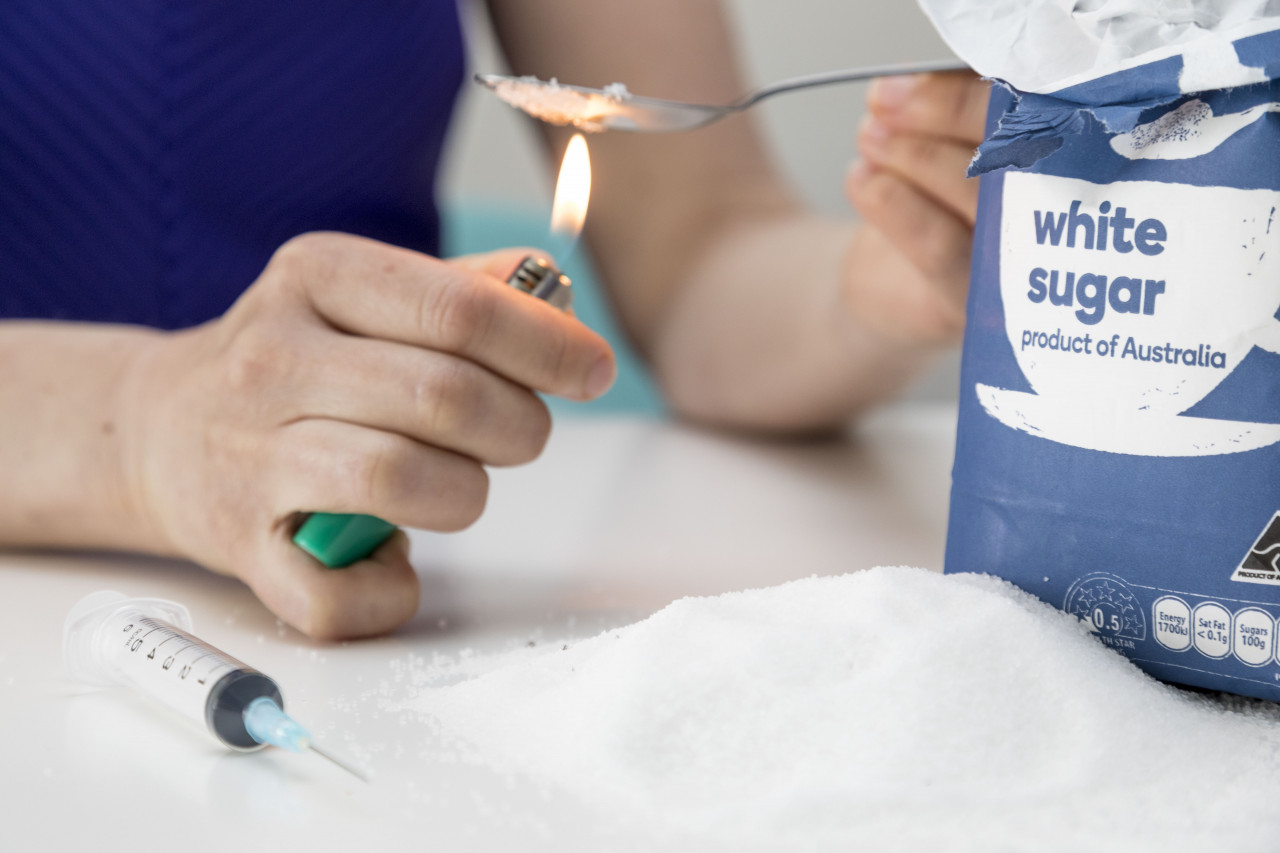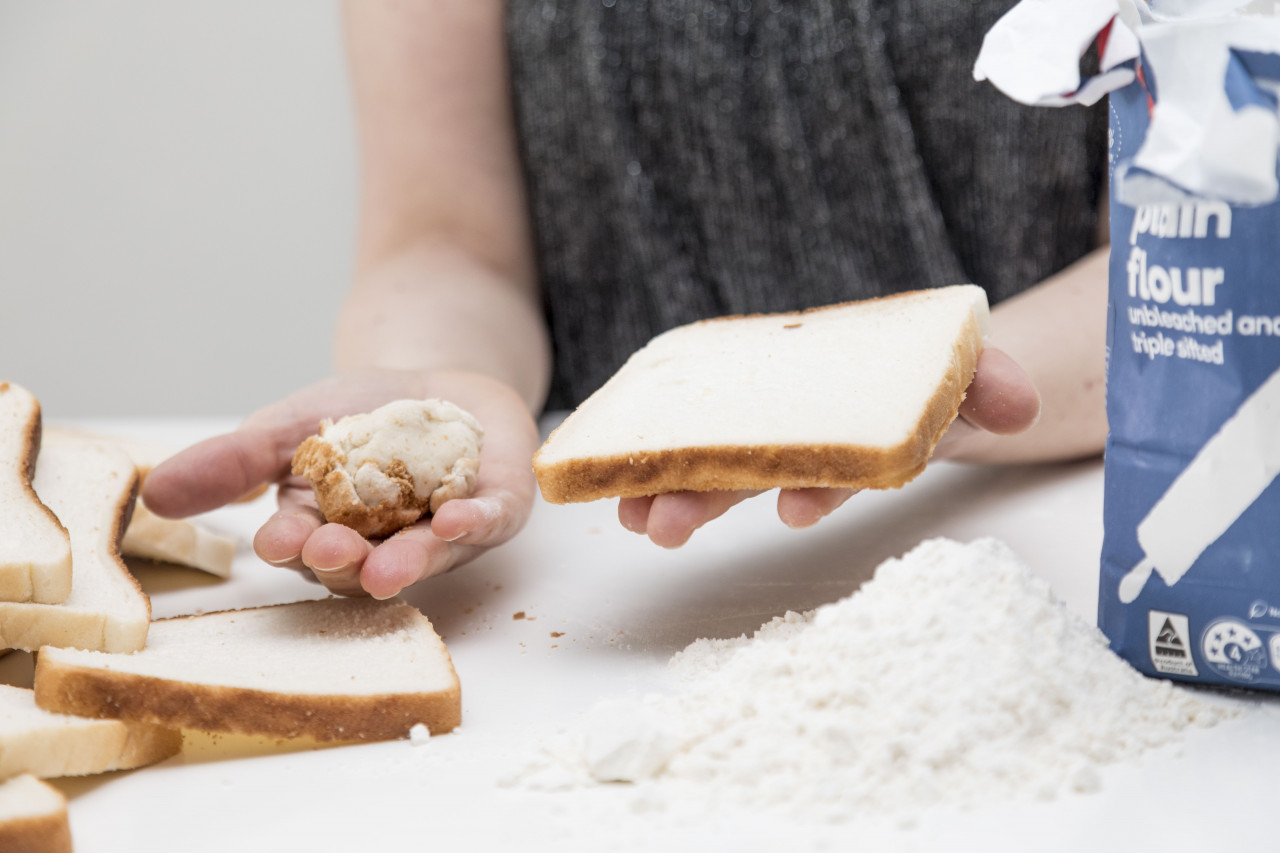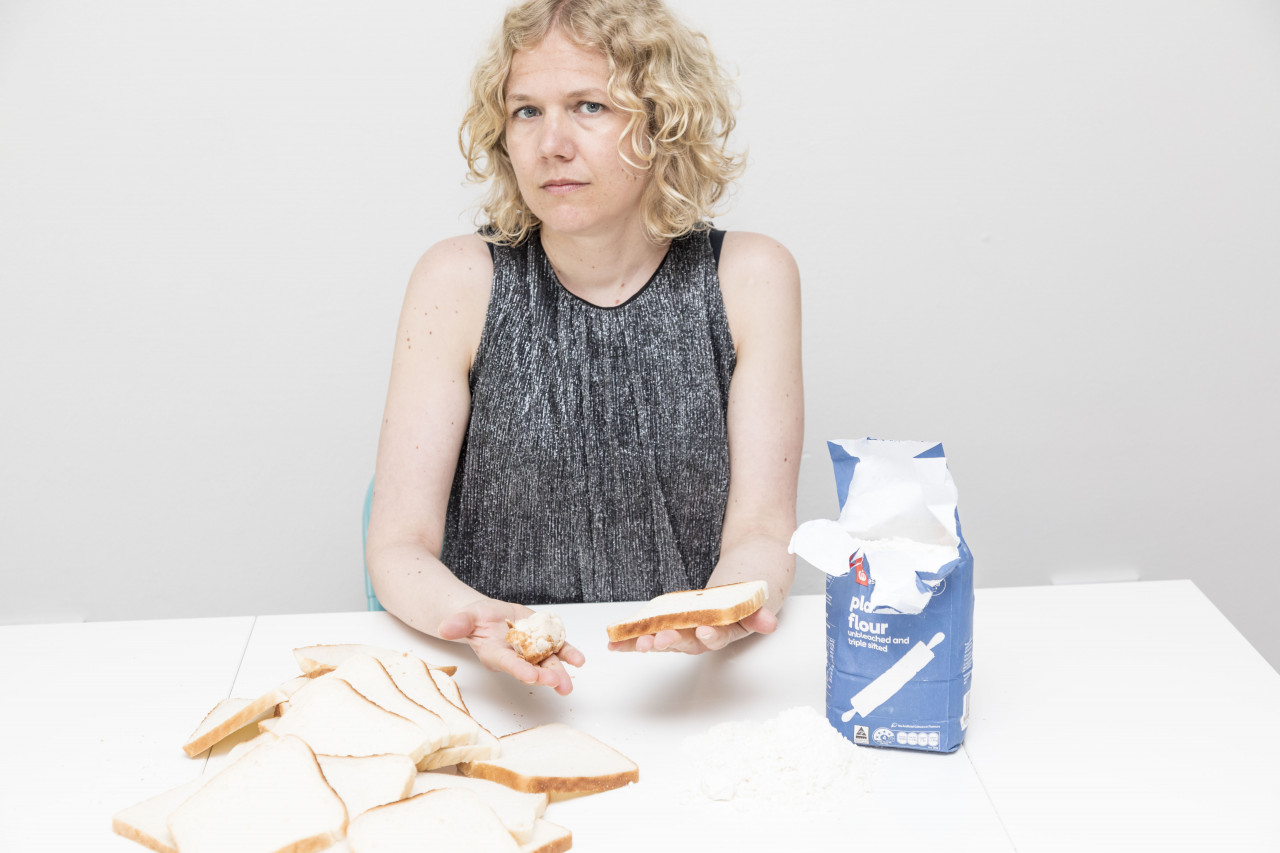My sugar & flour photoshoot I Food Addiction Counsellor & Psychotherapist shares behind the scenes

Join me behind the scenes of a photoshoot where we capture the addictive qualities of sugar and flour. Insights from a food addiction counsellor
A few years ago I asked a photographer friend to do a photoshoot with me to visually express the addictive qualities of sugar and flour.
I was inspired by the thought that sugar and flour have the same appearance as illegal drugs such as heroin and cocaine and so I wanted him to take pictures of me snorting sugar and flour just like you would snort cocaine.
My photographer friend thought that I was crazy and that what I was trying to show was far too extreme. But I don’t think so.
As William Dufty said as far back as 1975, this is not much different from heroin, which is taken from the juice of the poppy and then refined into opium, morphine and heroin. Or, as Gary Taubes says, think about cocaine, which is derived from coca leaves. Same thing. White powder derived from a natural source but highly processed to concentrate the natural properties.
In their original state (be it sugar cane for sugar, grains in the case of flour, poppy for heroin or coca leaf for cocaine) these substances are not that addictive. It’s their processed nature that makes them so addictive.
Sugar is actually a poison called chronic dose-dependent hepatotoxin, according to Dr Robert Lustig.
When we eat sugar, our body produces insulin to process the glucose contained in sugar. The more sugar we eat the more insulin is needed. With our modern day excessive sugar consumption insulin levels get so high they actually block the function of the hunger-regulating hormone leptin. This means we no longer know when we’re full. Even worse, this creates a kind of insatiable hunger and leads to more eating.
Sugar also releases dopamine in the brain, which makes us feel good. Eating lots of sugar overstimulates the dopamine receptors in our brains to the point that the brain has to downscale their activity. As a result we get really strong sugar cravings and need more and more sugar to get the desired feel good effect.
Sugar makes us gain weight because while the insulin is in the blood dealing with all the glucose, it tells our fat cells to hold on to the fat. That’s because part of insulin’s job is to make sure excess energy is stored in case it’s needed later. So it actually turns off our fat burning processes.
If you want to learn more about this, check out That Sugar Film and read the research of Dr Susan Peirce Thompson.
Ok, so we’ve recapped on the sugar, but what about flour?
Food addiction specialist Kay Sheppard says that addictive eaters usually binge on highly refined carbohydrates (including flour) because they rapidly convert into sugar. So, flour has a similar effect on the body as sugar because it contains a high amount of glucose.
The problem with flour is that the highly processed nature of the grain in powdered form releases too much glucose too fast. This is called bioavailability, or the ease with which something is absorbed from the digestive tract.
The higher the bioavailability of a food, the greater the total absorption and rate of absorption. The faster a food is absorbed, the more quickly it turns to glucose in the body. So, we’re getting a hit of too much glucose too fast, and that sets off similar insulin spikes as with excess sugar consumption.
Even though whole grains have been in our diets for thousands of years, the process of milling and grinding grains is fairly recent. The more refined a flour is, the more bioavailable it becomes. While it’s said that whole grains take much longer to be digested that refined flours, for addictive eaters all flours are highly addictive.
Look at what happens when you squeeze a slice of bread into your hands. It totally disintegrates. It’s just white powder. There’s nothing nutritious or life giving about it.
An interesting person to follow on the addictive qualities of highly processed foods is Calley Means.
And so here are the photos…




Categories: : Food Addiction, Sugar addiction

Acknowledgement of Country
I recognise the history, culture, diversity and value of all Aboriginal and Torres Strait Islanders, and acknowledge their Elders past and present.
I acknowledge that sovereignty has never been ceded, and support reconciliation, justice and the recognition of the ongoing living culture of all First Nations people by providing welcoming and culturally informed services.
Embracing inclusivity and diversity, I also support a culture of inclusion, respect, choice, voice and diversity and am committed to supporting all people to be mentally well and engaged in their communities.
 Vanessa Kredler
Vanessa Kredler 
